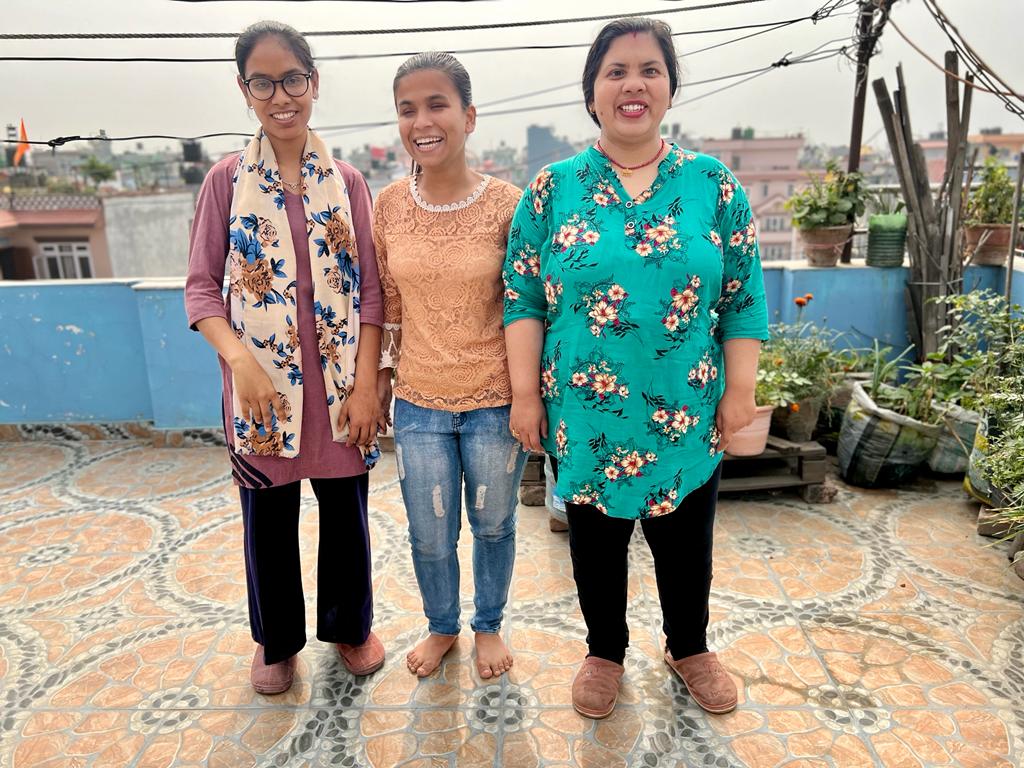Blog
A Compass to Steer Our Work in Gender Transformation and Inclusion
DRF/DRAF’s ‘Gender Guidelines’ are coming to life through a pivotal implementation plan.

At a time of unprecedented crises when women with disabilities are raising alarms on the dual pandemic of gender-based violence and Covid-19 with shockingly little support, the Disability Rights Fund (DRF) and Disability Rights Advocacy Fund (DRAF) are pleased to share our Gender Guidelines Implementation Plan. This Plan outlines the practice of DRF/DRAF’s Gender Guidelines, applying a gender transformative lens to learn intentionally about the intersecting issues facing women and girls with disabilities from marginalized communities, identities, and sexualities, such as Indigenous communities, refugees, and LGBTQI+ persons. We embrace a learning approach to our work and are glad to release this Plan to the public as part of our commitment to knowledge-sharing.
Given the complex, and sometimes dangerous, political, social, and cultural contexts within which organizations of persons with disabilities advocate, we committed to learning and assessing in the first four years of implementation how to best resource and support women with disabilities and persons with disabilities of diverse SOGIESC (Sexual Orientation, Gender Identity and Expression, and Sex Characteristics). The Plan is also a learning document that will evolve and adapt as needed over time.
The advocacy of the National Indigenous Disabled Women Association (NIDWAN)—our strategic partner in Nepal—exemplifies the multiple forms of discrimination that Indigenous women with disabilities face, as well as their powerful strategic vision for long-term and systemic solutions. Pratima Gurung, President of NIDWAN, explains: “I am an indigenous woman with a disability and a climate justice activist from Nepal. We have been framing climate justice policies with an intersectional lens at the grassroots level. Our lived experience highlights climate change impacts in our daily lives. Today, as indigenous peoples, our access to forests, lands, and territories is denied by the state policies. It has been crucial for us to frame our own narratives. We are collecting evidence from the ground, organizing meetings and workshops and having dialogues with different stakeholders at regional, national, and global levels and we want development partners to work in collaboration with us.”
Listening deeply to our grantees, like NIDWAN, the implementation of our Gender Guidelines continues to be guided by these strategic objectives of the Plan:
- Women with disabilities and persons with disabilities of diverse SOGIESC are increasingly resourced and technically equipped to organize and build strong representative organizations
- They are supported to play a stronger role within the disability movement, the women’s movement, and the LGBTQI movement to ensure their priorities are part of the advocacy agendas of these broader movements
- They are supported to participate in advocacy to change global level dialogues on gender, sexuality, and disability to be more inclusive and intersectional.
Ultimately, we hope that the human rights advocacy led by women with disabilities and persons with disabilities of diverse SOGIESC is increasingly resourced and technically supported, and DRF/DRAF strategies and personnel are equipped to progressively apply a gender transformative approach. As a funder, we also recognize the need to be nimble and responsive to the ground realities of our grantees. Dwi Ariyani, DRF/DRAF’s Asia Regional Head of Programs, explains: “Climate change is affecting the lives, wellbeing, and livelihoods of persons with disabilities, especially women and girls with disabilities who face multiple forms of discrimination due to intersectional challenges of ableism and sexism. DRF/DRAF are the largest supporters of women with disabilities, often the first and only funder of these organizations. We made our funding flexible to sustain people with disabilities and their advocacy during climate disasters.”
As a funder and an advocate, DRF/DRAF also strives to deepen dialogues on the importance of inclusive movement building and cross-movement collaboration. We feel optimistic about our role as a bridge builder and connector as a growing number of feminist funders are recognizing disability rights and gender as an important intersectionality. DRF/DRAF will continue to apply a feminist approach to monitor, evaluate, and learn from the implementation of the gender guidelines. We look forward to sharing the early results of this work soon!
Thank you for reading and amplifying this Plan. We also welcome feedback! You can reach us at [email protected], and you can tag us on Twitter: @DisabRightsFund